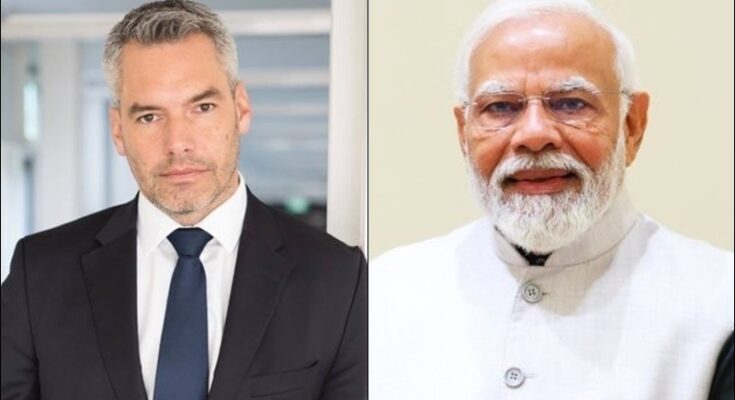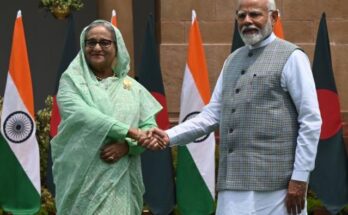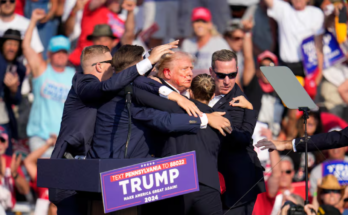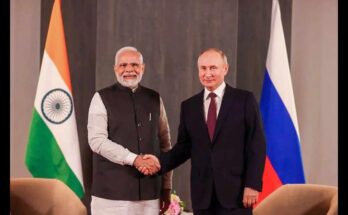In a world where diplomacy shapes destinies, Prime Minister Narendra Modi’s visit to Vienna today is more than just a ceremonial trip. It’s a strategic move that could redefine India’s position on the global stage. For political analysts, the Indian diaspora, and global economic stakeholders, this visit is loaded with potential implications. But why exactly is this visit so significant? Let’s unpack the layers.
Understanding the India-Austria Bilateral Relationship
India and Austria share a relationship that is both historic and evolving. The two nations have engaged in diplomatic and economic activities for decades. While their partnership may not always make headlines, it has grown steadily over the years.
Historical Ties
India and Austria have enjoyed diplomatic relations since 1949. Over the years, both countries have cooperated in various fields, including trade, education, and technology. Austria was among the first European countries to establish diplomatic ties with independent India, marking the beginning of a long-standing friendship.
Economic Partnership
Trade between India and Austria has witnessed consistent growth. In 2019, bilateral trade amounted to approximately $1.9 billion. India primarily exports textiles, garments, leather goods, and chemicals to Austria. In return, Austria exports machinery, steel, and electronic goods to India. This economic interdependence offers a solid foundation for strengthening ties further.
Cultural Exchange
Cultural exchange programs have been a significant aspect of the India-Austria relationship. Indian cultural festivals, film screenings, and academic collaborations have fostered mutual respect and understanding between the two nations.
Key Agreements and Discussions During the Visit
PM Modi’s visit to Vienna isn’t just about shaking hands and posing for pictures. Several key agreements and discussions are on the agenda, each with far-reaching implications.
Economic Agreements
One of the primary focuses of the visit is to bolster economic ties. Several agreements are expected to be signed, covering areas such as renewable energy, technology transfer, and infrastructure development. With Austria being a hub for technological innovation, these agreements could pave the way for India to adopt cutting-edge technologies.
Political Cooperation
Political stability and cooperation are crucial for any bilateral relationship. Discussions around defense cooperation, counter-terrorism measures, and cyber security are on the table. Strengthening political ties will provide a robust framework for addressing global challenges together.
Cultural Initiatives
Cultural diplomacy is another significant aspect of the visit. Initiatives to promote cultural exchanges, educational collaborations, and tourism are expected to be discussed. These efforts aim to deepen people-to-people connections, enriching the relationship beyond mere economics and politics.
Insights from Political Analysts and the Indian Diaspora
What do political analysts and the Indian diaspora think about PM Modi’s visit to Vienna? Their insights offer valuable perspectives on the potential impact of this diplomatic endeavor.
Political Analysts Speak Out
Political analysts view this visit as a strategic move to enhance India’s global influence. According to Dr. Rajiv Kumar, a prominent political analyst, “PM Modi’s visit to Vienna is crucial for expanding India’s diplomatic reach in Europe. Austria’s strategic location in Central Europe makes it an ideal partner for India.”
The Indian Diaspora’s Perspective
The Indian diaspora in Austria is optimistic about the visit. Priya Mehta, a member of the Indian community in Vienna, shares, “We are thrilled about PM Modi’s visit. It signifies the importance of the Indian community in Austria and opens up new avenues for collaboration.”
Potential Impact on Both Countries
The visit is expected to bring tangible benefits to both India and Austria. For India, it means access to advanced technologies and enhanced political cooperation. For Austria, it offers an opportunity to tap into the burgeoning Indian market.
Global Economic Stakeholders’ Interests
PM Modi’s visit to Vienna holds significant implications for global economic stakeholders. From multinational corporations to international financial institutions, various entities are closely watching this diplomatic event.
Multinational Corporations
Multinational corporations see this visit as an opportunity to explore new business avenues. Enhanced economic ties between India and Austria could lead to joint ventures, technology transfers, and investment opportunities.
International Financial Institutions
International financial institutions are keenly observing the visit’s outcomes. Strengthened economic ties could lead to increased foreign direct investment (FDI) and improved economic stability in both countries.
Geopolitical Implications
The visit also has geopolitical implications. Strengthening ties with Austria could enhance India’s influence in Europe, providing a counterbalance to China’s growing presence in the region.
Conclusion The Significance of PM Modi’s Vienna Visit
PM Modi’s visit to Vienna is more than just a diplomatic event; it’s a strategic move with far-reaching implications. The visit aims to strengthen economic, political, and cultural ties between India and Austria, offering benefits for both nations and global economic stakeholders.



